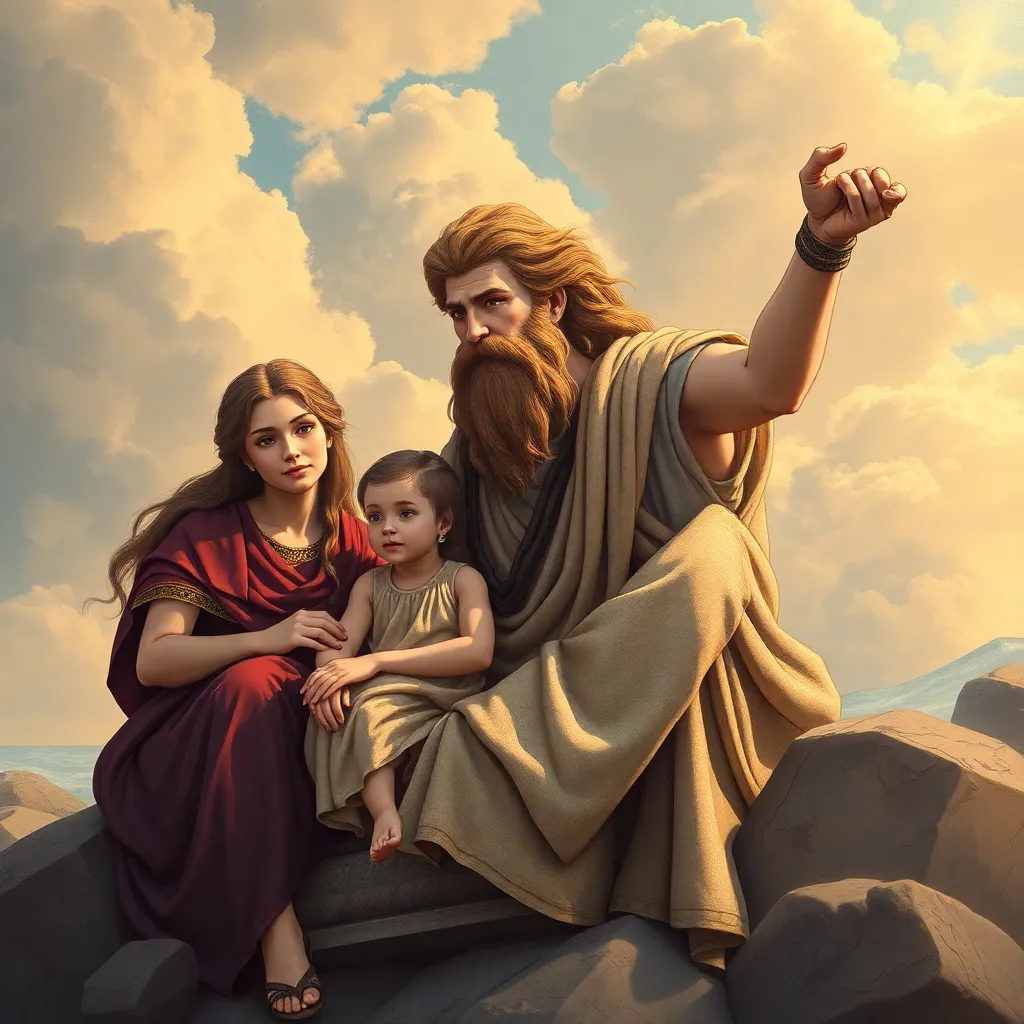The Role of Family in Odysseus’s Journey: Bonds That Matter
I. Introduction
Homer’s “The Odyssey” is a monumental epic that chronicles the trials and tribulations of Odysseus as he strives to return home after the Trojan War. Throughout this arduous journey, family emerges as a central theme, influencing decisions, actions, and the overarching narrative. The bonds of family, characterized by love, loyalty, and sacrifice, play a pivotal role in shaping Odysseus’s quest and the lives of those he holds dear. This article explores the significance of familial relationships and their profound impact on Odysseus’s journey home.
II. The Concept of Family in Ancient Greek Society
In Ancient Greece, family, or “oikos,” was the cornerstone of social structure and personal identity. The concept encompassed not only immediate relatives but also extended family and household members. Kinship and loyalty were fundamental values, influencing social interactions and responsibilities.
- Definition of family: Family was seen as a unit of social, economic, and political importance.
- Significance of kinship: Loyalty to family members was paramount, often dictating alliances and enmities.
These values are vividly illustrated in “The Odyssey,” where characters are often motivated by familial ties and the desire to protect or reunite with loved ones.
III. Odysseus’s Relationship with Penelope
Odysseus’s relationship with his wife, Penelope, exemplifies the strength of marital bonds in Greek culture. Their love story, marked by faithfulness and cleverness, serves as a testament to the enduring nature of their union.
- Penelope’s loyalty: Throughout Odysseus’s long absence, Penelope remains steadfast, fending off suitors and preserving her household.
- Her cleverness: Penelope employs her intelligence, weaving and unweaving a tapestry as a ruse to delay remarrying.
The emotional and psychological impact of their reunion is profound. When Odysseus finally returns, their bond is reignited, symbolizing not just personal love but also the restoration of family unity.
IV. The Role of Telemachus
Telemachus, the son of Odysseus and Penelope, embodies the journey of growth and self-discovery. His evolution throughout the narrative highlights the importance of the father-son relationship in shaping identity and legacy.
- Growth and development: Initially portrayed as passive and uncertain, Telemachus embarks on his own journey to find news of his father, signaling his maturation.
- Father-son significance: The bond between Odysseus and Telemachus becomes a source of strength, illustrating the importance of mentorship and guidance.
Telemachus emerges as a symbol of hope and legacy, representing the future of the family line and the ideals of courage and perseverance.
V. The Influence of Extended Family and Ancestors
Odysseus’s relationships with his parents, Laertes and Anticlea, as well as his ancestral lineage, play crucial roles in his identity and decision-making.
- Role of Laertes and Anticlea: Their guidance and wisdom influence Odysseus’s actions, reminding him of his duties and heritage.
- Ancestral guidance: The importance of honoring one’s ancestors is a recurring theme, with familial expectations shaping Odysseus’s choices.
The impact of family history on Odysseus’s identity is profound, as he grapples with his legacy and the responsibilities that come with it.
VI. The Concept of Homecoming (Nostos)
Nostos, or the theme of homecoming, is a defining element in “The Odyssey.” It encapsulates the longing for return and the emotional weight attached to reuniting with family.
- Definition and significance: Nostos represents not only a physical return but also the restoration of familial bonds and personal identity.
- Family’s role in homecoming: Odysseus’s desire to return to Penelope and Telemachus propels his journey, motivating him through numerous challenges.
The emotional weight of returning to loved ones is palpable, as Odysseus navigates trials that test his resolve and commitment to family.
VII. The Dangers of Familial Disruption
The narrative of “The Odyssey” also explores the consequences of familial disruption, particularly through the lens of disloyalty and betrayal.
- Consequences of disloyalty: The suitors, who invade Odysseus’s household, represent the dangers of betrayal and the erosion of family values.
- Impact of separation: The prolonged absence of Odysseus creates tension and uncertainty within his family, highlighting the fragility of familial bonds.
Lessons learned from these disruptions emphasize the importance of maintaining family ties and loyalty, even in the face of adversity.
VIII. Conclusion
In conclusion, the importance of family in Odysseus’s journey cannot be overstated. From the unwavering loyalty of Penelope to the transformative growth of Telemachus, familial bonds shape the narrative and character development throughout “The Odyssey.” The epic reflects universal themes of love, loyalty, and the enduring ties that bind us to our loved ones. As we explore Odysseus’s quest for home, we are reminded of the timeless relevance of family relationships, resonating with contemporary views on the significance of family in our own lives.




